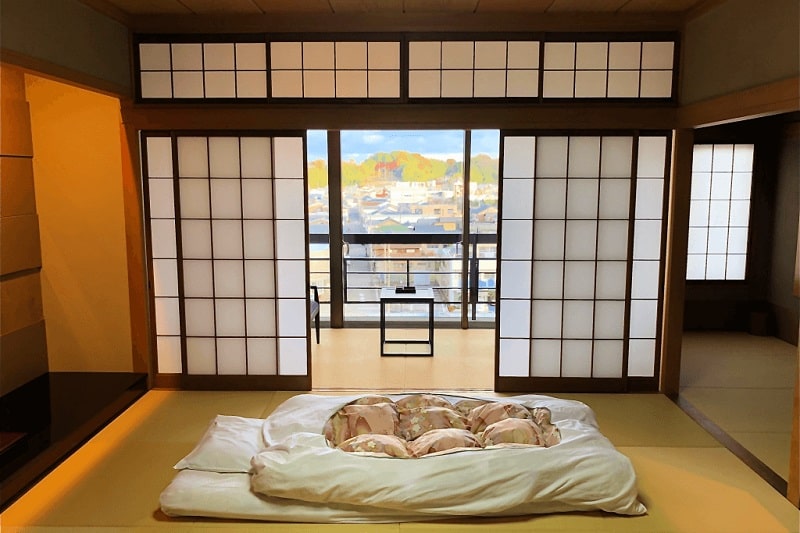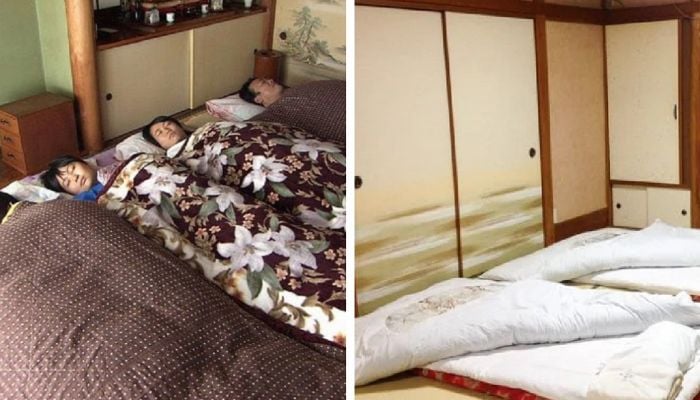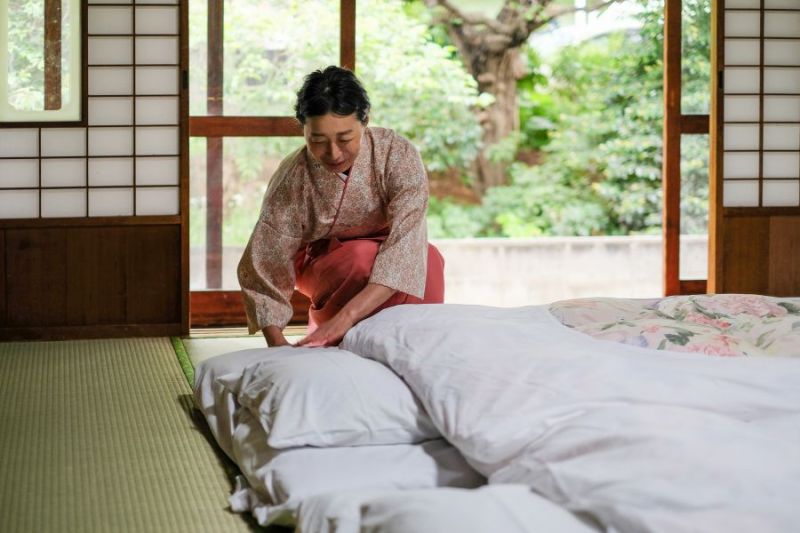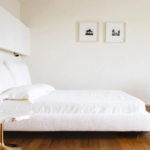In Vietnam, every bedroom has a sturdy bed for sleeping, but it is different for the Japanese. When you step into a Japanese-style bedroom, you might not find any beds. In reality, there are beds in Japan, and the price of beds is not too high, so why do the Japanese choose to sleep on the floor? Here are 4 reasons.
Reason 1: Utilizing space

The population density in urban areas of Japan is high, so the number of small apartments is also high. This also leads to Japanese houses being typically small. To save space, the Japanese often build thin walls or sliding doors to separate different functional spaces. They also often arrange the living room to double as a bedroom with just a tatami mat. This is a type of mat that is small and lightweight, used for multiple purposes, to make the most of the living space.
Furthermore, not only is the land limited, but the houses in Japan are also built with a relatively low height, so if they use beds, an adult standing on the bed could touch the ceiling. Because of this lack of space, the Japanese people have had to adapt to ensure their quality of life is acceptable. When lying directly on the floor, the ceiling will feel higher. Without a bed, the empty floor area is also larger.
Reason 2: Ensuring safety

Japan is one of the countries with the most earthquakes in the world. Therefore, the Japanese also have to be the most prepared for any situation.
Living on this island, it is crucial to sense an earthquake promptly and find a safer place. To react quickly to earthquakes, the Japanese lay on the floor to feel the shaking more clearly and quickly find a safer place. If they sleep on a bed, this feeling will be much slower. Moreover, if there is less furniture in the house, they can quickly escape when an earthquake occurs.
Reason 3: Good for health

Many Japanese people believe that the sleeping surface should have moderate elasticity, not too hard or too soft. When sleeping on a flat, hard surface, it is good for the back and helps increase blood circulation because your weight is evenly distributed and less pressure is exerted on different parts of the body. On the contrary, sleeping on a soft bed, although comfortable, the mattress can start to sag over time, causing your spine to bend and lead to back pain. Besides, sleeping on the floor reduces the risk of falling for the elderly when they want to move from the bed to the ground.
The Japanese not only sleep on a wooden floor but also sleep on a tatami mat or futon. Tatami mats are made of tightly woven dry straw to increase elasticity and provide a comfortable feel. Besides, the mattress in Japan is not too thick, the pillows are also quite special, smaller in size, and filled with various types of grains. At first, you may find the pillow quite firm, not as comfortable as the familiar cotton-stuffed pillows, but this type of pillow is good for the neck and spine.
Reason 4: Traditional cultural practices

The traditional cultural reason is perhaps the reason that determines sleeping on the floor for the Japanese. This is one of the main reasons that answers the question of why the Japanese do not sleep on beds. Simply because the cultural tradition of sleeping on the floor has existed for thousands of years in Japan. This habit has been passed down from generation to generation of Japanese people for millennia and has become a deep-rooted cultural feature of the Japanese.



































